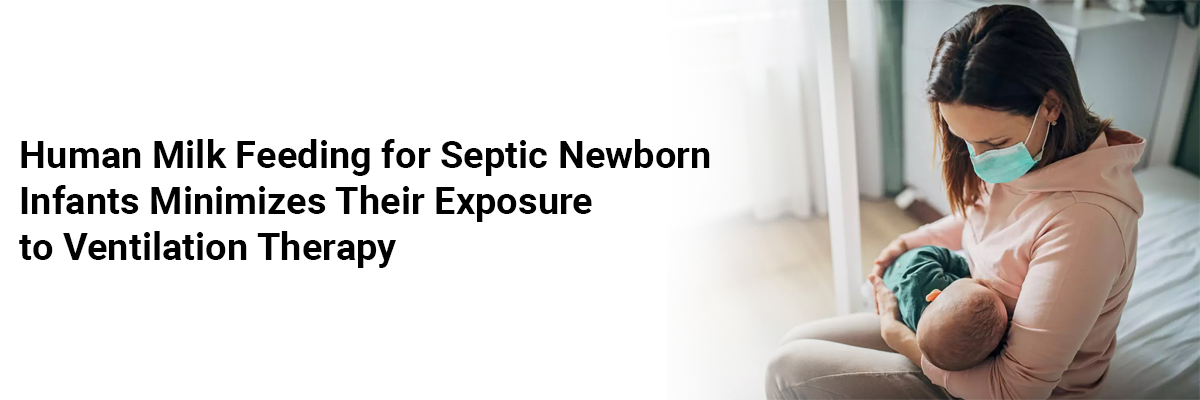
 IJCP Editorial Team
IJCP Editorial Team
Human Milk Feeding for Septic Newborn Infants Minimizes their Exposure to Ventilation Therapy
We evidently know that human milk feeding restricts lung diseases in vulnerable neonates. A recent study by Moliner-Calderón E. et al. compared the need for mechanical ventilation between human milk-fed neonates with sepsis and formula-fed neonates with sepsis.
The study recognized all late preterm and full-term infants from a single center with sepsis findings from 2002 to 2017 and recorded data on infant feeding during hospital admission. It performed multivariate logistic regression analyses to assess the impact of feeding type on ventilation support and main neonatal morbidities.
The study enrolled 322 participants (human milk group = 260; exclusive formula group = 62). Bivariate analysis showed that 72% of human milk-fed neonates do not require oxygen therapy or respiratory support versus 55% of their formula-fed counterparts. Accordingly, only 9.2% of any human milk-fed infants require invasive mechanical ventilation versus 32% of their exclusively formula-fed counterparts.
The investigators found these results valid even in the multivariate analysis; indeed, any human milk-fed neonates were more likely to require less respiratory support than those exclusively formula-fed. Thus it is assuring that human milk feeding minimizes exposure to mechanical ventilation.
Moliner-Calderón E, Verd S, Leiva A, Ponce-Taylor J, Ginovart G, Moll-McCarthy P, Gelabert C, Figueras-Aloy J. Human Milk Feeding for Septic Newborn Infants Might Minimize Their Exposure to Ventilation Therapy. Children. 2022; 9(10):1450. https://doi.org/10.3390/children9101450

IJCP Editorial Team
Comprising seasoned professionals and experts from the medical field, the IJCP editorial team is dedicated to delivering timely and accurate content and thriving to provide attention-grabbing information for the readers. What sets them apart are their diverse expertise, spanning academia, research, and clinical practice, and their dedication to upholding the highest standards of quality and integrity. With a wealth of experience and a commitment to excellence, the IJCP editorial team strives to provide valuable perspectives, the latest trends, and in-depth analyses across various medical domains, all in a way that keeps you interested and engaged.





















Please login to comment on this article